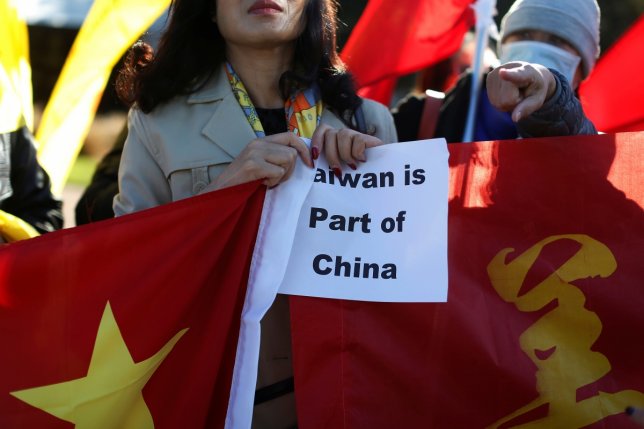
China has asked the United States not to permit Taiwanese representatives to attend the inauguration of President-elect Donald Trump on Friday. The move assumes significance after Trump's recent utterances over the One-China principle ruffled feathers in China.
Reuters said on Wednesday Chinese Foreign Ministry spokeswoman Hua Chunying announced the Chinese move at a press briefing.
Taiwan had earlier said a delegation led by former premier Yu Shyi-kun will represent the country at the inauguration of Trump on January 20. The attendance of Taiwanese delegation at the presidential inauguration will further complicate the three-way diplomatic balance.
Taipei said lawmakers and leaders from both the ruling Democratic Progressive Party and the opposition Nationalists will attend the event in order to "express the importance our government and people place on close friendly bilateral relations."
Taiwan assumed the centre-stage of US-China ties immediately after Trump won the November 8 election, following which Taiwanese President Tsai Ing-wen telephoned the Republican leader to congratulate him. An offended China said the unprecedented move violated the long honoured One-China principle and upset the bilateral ties.
China reacted with a terse but clear statement expressing discontent over Trump's telephone conversation with Tsai. No US president or president elect has held official talks with a Taiwanese leader since Washington adopted the One-China policy in 1979. China considers self ruling Taiwan as a renegade province and hasn't stood down on the possibility of using force to annex the island.
China considers self-ruling Taiwan as a renegade province and hasn't stood down on the possibility of using force to annex the island. The US recognized the People's Republic of China and started diplomatic relations with Beijing in the early 1970s, but continued cordial unofficial relations with Taiwan. However, no US president or president-elect has held official talks with a Taiwanese leader since Washington adopted the One-China policy in 1979.
As the war of words escalated, Trump said he did not know why the US should "be bound by a One China policy unless we make a deal with China having to do with other things, including trade."
Trump also resolutely defended his call with Tsai and said he didn't want China to dictate terms to him. "I don't want China dictating to me and this was a call put into me .. It was a very nice call. Short. And why should some other nation be able to say I can't take a call ... I think it actually would've been very disrespectful, to be honest with you, not taking it," Trump said.
Upping the ante in the worsening diplomatic tussle, China formally asked the US to block Tsai from making a transit in New York.
However, the US did not block Tsai's entry in the country. The Taiwanese president also held discussions with Texas Republican Senator Ted Cruz as well as the state governor during her transit through the country.









